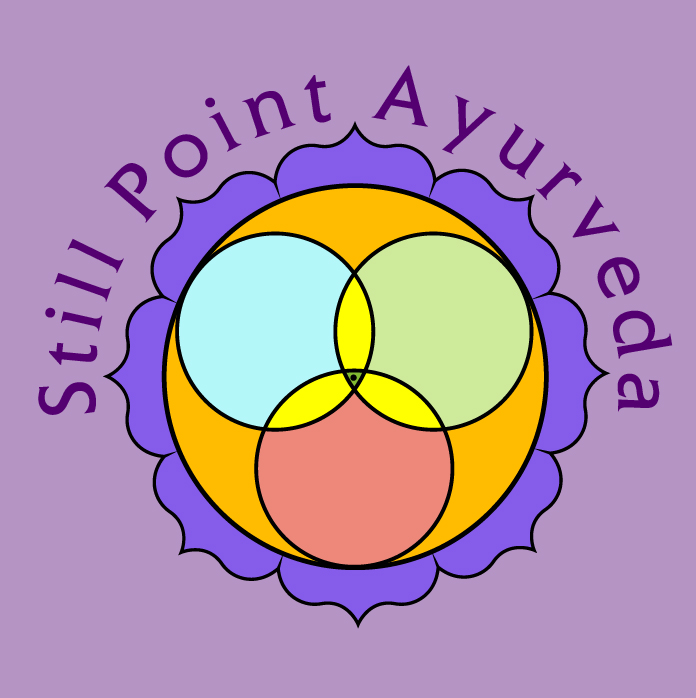PUMP IT UP
/February marks the beginning of what Ayurveda calls Kapha Season. Kapha, is considered Spring time and this month is the beginning process, where the qualities are predominantly cold and moist. We have snow on the ground and as the months continue the snow thaws out and we experience cold wet rain of Spring. This time of year is when we can feel low energy, depleted, lethargic and depressed. The lymphatic system is a major influence in the symptoms associated with this time of year and it's up to use to keep thing's moving so we don't succumb to the negative effects of the season that invites virus', colds, flu's and other types of upper respiratory infections.
Here's a couple Ayurvedic suggestions to reduce such things.
1) SPICES: Counter the qualities of cold and moist by using spices such as ginger powder, garlic powder, curry powder, chili powder, black pepper and red pepper flakes. Spices in general that help digestion include cumin, mustard seeds, oregano, cardamom, cinnamon and turmeric. These spices are warm and drying. There are six tastes according to Ayurveda. The three that balance Kapha are bitter, pungent and astringent. Minimize sweet, salty and sour tastes.
2) FOODS: Eat foods that are lighter in quality. Less potatoes (unless spiced). Grains like barley, quinoa, buckwheat and basmati rice (short grain.) Greens are hard to come by since the climate doesn't support it so much. Spinach, scallions, kale and other dark leafy greens are generally around. Use spices and light oils like coconut or ghee. Soups/stews and wraps work. Think light, dry, warm and spicy.
3) SLEEP: It's tempting to stay in bed longer these days since we can feel heavier in the morning. The issue with this is that Kapha time of day is 6am to 10am and the longer we stay in bed the more difficult it is to get out of bed. By staying later in bed we increase lymphatic congestion and sluggishness in our digestive systems. We are more sedentary and therefore this can contribute to lower energy and slower metabolism. Therefore, resist the urge to stay in bed past 7am. Make a conscious effort to move the body from the bed and get the juices flowing.
4) EXERCISE: Morning time is the best time to engage and build muscles. Cardio activities strengthen the heart and not only get the blood moving but the lymphatics draining better. AT least 15 minutes 3-4x a week where the heart rate is raised. Hiking is good too! At home you could can do several rounds of Surya Namascar (Sun Salutations) before showering. Creating a light sweat helps to detox the body.
5) SOCIALIZING: It's easy to get cabin fever when the snow is outside our door and keeps us away from the rest of the world. This can have a psychological effect. Invite friends over for simple gatherings. Socializing can be good for the heart and motivate us to keep moving. Cook dinner. Watch movies. Go for a walk in the local park. Just bundle up if you go outside!
6) HOT LIQUIDS: Simple hot water. Add lime or lemon or honey. Other teas like Yerba Mate, Jasmine, Black Tea, Chai, Turmeric and Cinnamon combined, CCF Tea (Cumin, Corriander, Fennel), Ginger and Tulsi. These teas will help stimulate digestion and support the functioning of lymphatics.
7) SINUS SUPPORT: Sinus' can get congested more easily. When you find this happening this is the best time to implement the usage of using the Neti Pot. If you don't have one, buy one. Instructions come inside. Basically, it's 1/8tsp. of non-iodized sea salt mixed with warm water. Irrigate the nasal passages evenly. Ayurveda says that even better than Neti is Nasya, which is simply an herbalized oil added to each nostril first thing in the morning and sometimes later that day depending on how dry the air is, especially at night with the heating being on in the bedroom. Keeping the sinus cavities properly lubricated is one of the best ways of reducing colds and other respiratory infections, considering that this is usually where it starts. You can find a good Nasya oil through Banyan Botanicals, Sinus Support, Ayurvedic Institute or even LifeSpa. (These links are included on my website under Shop--Herbs and Supplies.) The nose knows!
8) BODYWORK: Getting a hot stone or lymphatic massage is a great way to support increasing circulation. Ayurveda has a treatment called Garshana, which involves usage of a wool or raw silk glove for lymphatic stimulation. Additionally, there is a treatment called Udvartana, which involves a type of churna (powder) massage. Both types of treatment are followed by sauna therapy. Do it yourself by purchasing appropriate gloves, based on your constitution (raw silk for Vata/Pitta and wool for Kapha) and start rubbing your own skin done regularly and before showering. Then lightly coat the skin with a simple oil like almond or sunflower. Jump in the shower and lightly soap off the oil.
Disclaimer:
This information is strictly for educational purpose only and not considered medical advice. Always first discuss with your primary care physician before considering any new health regimen.

